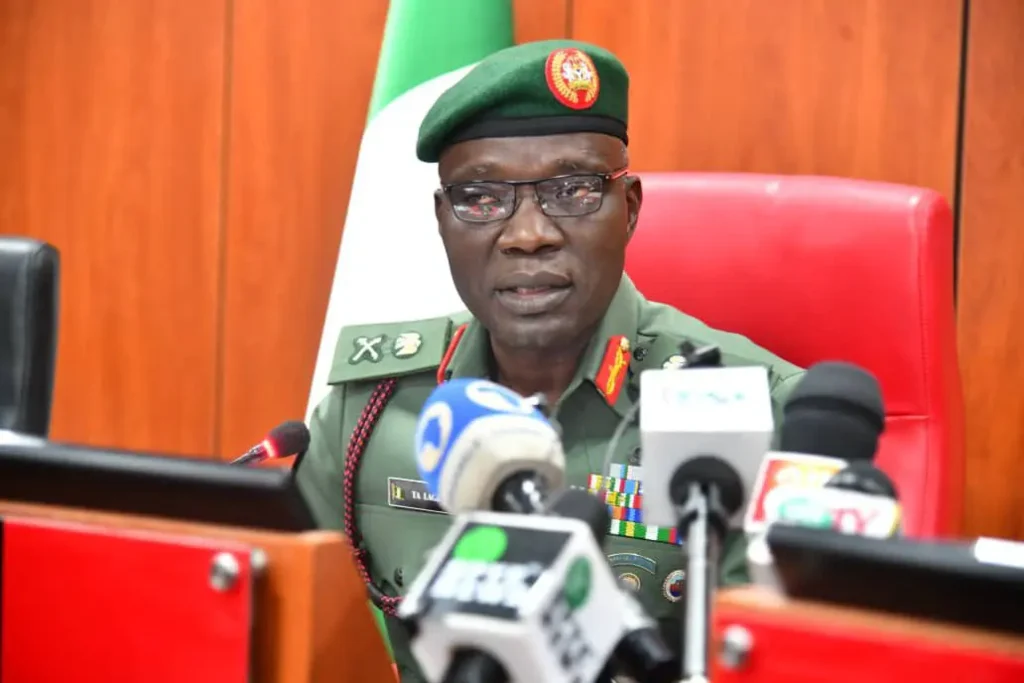CurrentReport Blog The Chief of Army Staff, Lt. Gen. Taoreed Lagbaja, has firmly stated that the Nigerian Army will not heed calls to overthrow the democratically elected government, emphasizing the military’s commitment to safeguarding the nation’s democracy. Speaking on Tuesday at the COAS Combined 2nd and 3rd Quarters Conference in Uyo, Akwa Ibom State, Lagbaja addressed the growing calls for military intervention, which he attributed to young Nigerians who lack firsthand experience of the country’s past under military rule.
Lagbaja underscored that the Nigerian Army has painstakingly built a “new prestige” over the last 25 years, which it is not prepared to lose by engaging in undemocratic actions. “The Nigerian Army will not allow itself to be used to undemocratically sail some interests to power,” Lagbaja declared. He further noted that the Army had been the most criticized institution during previous military interventions in Nigeria and is now dedicated to maintaining its hard-earned reputation.
Highlighting the support the Army continues to receive from both national and sub-national governments, Lagbaja pointed to the recent acquisition of two BELL UH-1 Huey Helicopters, equipped for a wide range of missions, including reconnaissance, surveillance, logistics, and medical evacuation. He also reaffirmed the Army’s commitment to the welfare of the widows and families of fallen heroes.
Addressing the recent nationwide hunger protests, Lagbaja acknowledged that the incident was a stark reminder that the Armed Forces must consider issues of food and social security, which can escalate into physical security challenges. Although the situation has calmed, Lagbaja emphasized that the Army is aware of the underlying issues, particularly food security, which contributed to the protests. He pledged the Army’s resolve to tackle these challenges, starting with a review of its agricultural policy.
The Army Chief revealed that the Nigerian Army currently provides security for farmers in critical farming communities across the North East, North West, and North Central zones, ensuring the continuity of food production in these regions. This security is crucial for maintaining the country’s food supply chain.
Lagbaja also announced plans for the Army to release grains into the market at subsidized rates, supporting government efforts to alleviate the food crisis. He mentioned ongoing reviews of proposals for partnerships with government ministries, departments, and agencies, as well as private organizations, to collaboratively address the nation’s food security challenges.
The Nigerian Army has also bolstered its capabilities with new combat enablers, including Mine-Resistant Ambush Protected Vehicles, rifles, and ammunition, to enhance security operations nationwide.












